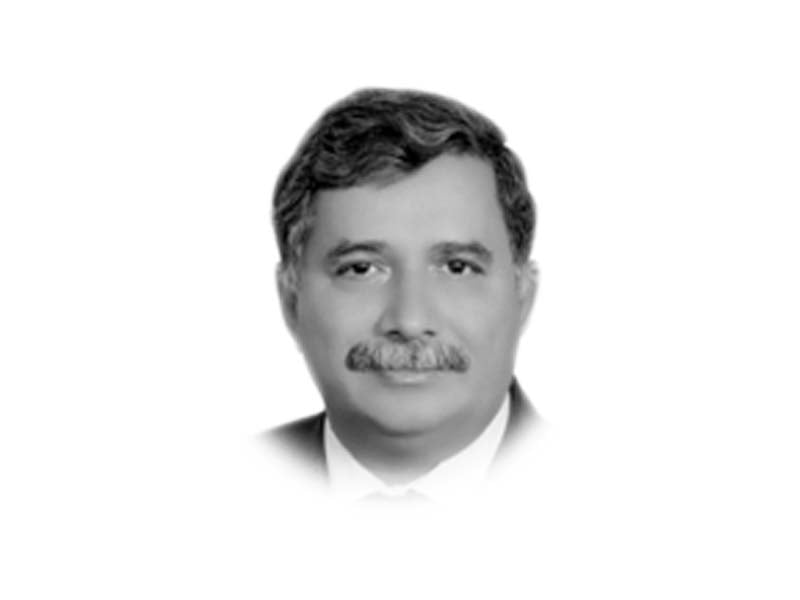
Many political analysts — who harboured sympathies for PTI and Imran Khan — now appear too dejected. They have rather turned their guns of critique on those they were supporting tooth and nail. Venomous outbursts of many such commentators — going to the extent of demanding that democracy be packed up in the country — are like waging a war against an elected setup, and even committing high treason. However, such harsh and hostile analyses are ignored as expressions of sheer frustration of those who had a romantic attachment with the PTI’s manifesto and who considered Imran Khan as the harbinger of peace and progress.
There is no doubt that Khan spearheaded the cause of the common man, highlighting issues like poverty, malnutrition among children, stunted growth, low literacy rate, class-based education system, inaccessible justice system, etc. He pledged 10 million jobs as well as 5 million residential units for people belonging to low-income groups.
Khan was terribly critical of the patwar and thana culture, and committed to revamping the whole system in line with the aspirations of the people. He also promised to break the begging bowl and never to approach global lending institutions like the IMF for any bailout packages.
He vowed to lift the economy by attracting foreign investment and enhancing exports, and getting the respect for the green passport restored the world over. He ensured equal distribution of wealth and resources among all. These and many other such promises made by Khan reverberated all round.
In Khan, thus, people dreamt a New Pakistan — where there would be rule of law and justice, socio-economic equality, peace and prosperity, etc. And not just the common man, but many political analysts, including some leading ones, were also sure that Khan’s arrival in power would usher in an era of social revolution. When Khan so vehemently expressed the sentiments of the people, it produced a revolution of expectations. For a large number of people in the country, if not a majority, a messiah had arrived, who would redress their grievances.
Alas! This could not happen. Still the country is far away from the rule of law. Justice is not only delayed but is also expensive. No civil service reforms, no change in patwar and thana culture, no social change, nothing. People are suffering record price hike amid low purchasing power. To make matters worse, there is also a scarcity of jobs for the youth.
With Khan failing to implement his election manifesto and going off-track, his admirers have started finding faults with parliamentary democracy and federalism. They are rather treating democracy as a punching bag and blaming it for all ills in the country ranging from governance crisis, lawlessness and economic meltdown to moral decay and declining value system. But since sweet dreams have turned into nightmares, the bitter reaction is but natural.
Not just Prime Minister Khan but his companions too were often heard citing the Chinese model or a presidential system of governance as a panacea for that ails Pakistan. But for their information, Mao Zedong, as the leading Chinese Marxist theorist, soldier and statesman, guided and led the Chinese Communist Party towards a communist revolution. Under him, the Communist Party considered Marxism and Leninism as the answer to China’s problem. The study of the pattern of the Chinese model clearly shows that the party had organised cadres imbued with ideological weapons and was not dependent on electables to bring about a change. His was a class struggle against capitalism, feudalism and imperialism.
It must be understood that socialism is the basic philosophy of the political system of China while the Communist Party of China through its politburo controls the system. Therefore, the main question that arises here is: Has the PTI been organised on those line? Has the composition and cadres of the party been on the pattern of the Communist Party? The answer is certainly a no. Then how could we have a Chinese model of governance without having a revolutionary party in power. It’s ironic that in contrast, the Imran Khan party even aspires to the Gen Ayub model which was based on the theory of ‘social greed’, diametrically opposed to the communist model that runs in China.
Of late, many PTI leaders have started advocating a presidential system, forgetting that Pakistan had experienced the same system for more than 30 years, with dictators in full command. In Ayub’s period, there was concentration of wealth in 22 families, which resulted in class and regional disparities, sowing the seeds of the separation of East Pakistan. In Yahya’s regime, we lost East Pakistan. In Zia’s period, Pakistan fought the America’s proxy war in the name of jihad, resulting in a war economy and the spread of sectarianism and extremism all across the country. Under Musharraf, the story is no different.
In all developed counties, democracies are functioning under different systems and are also delivering. Their focus is on good governance. This is possible because they not only adhere to constitutional arrangements but also to strong political conventions. Vigilant and robust accountability, known as the will of the people expressed through media and other means, act as a system of checks and balances. As such, no public representative can afford to go against the will of the people.
This brings us to the conclusion that it’s not primarily a certain governance system that is good or bad, but rather its operators. Political parties in Pakistan need to organise themselves on ideological lines. For that, there should be nurseries for leaders to emerge, with people required to free themselves from psychological bondage of political dynasties.
Published in The Express Tribune, March 9th, 2022.
Like Opinion & Editorial on Facebook, follow @ETOpEd on Twitter to receive all updates on all our daily pieces.

1729662874-0/One-Direction-(1)1729662874-0-405x300.webp)


1722421515-0/BeFunky-collage-(19)1722421515-0-165x106.webp)







COMMENTS (2)
Comments are moderated and generally will be posted if they are on-topic and not abusive.
For more information, please see our Comments FAQ